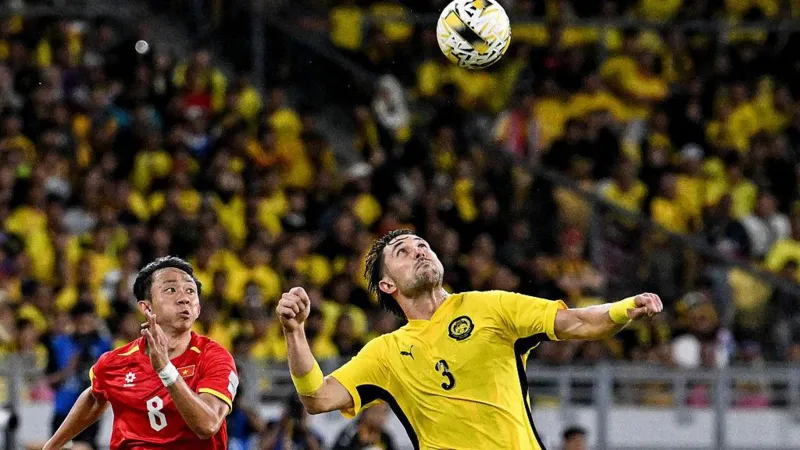Malaysia’s football scene has been rocked by scandal after FIFA accused the country of falsifying citizenship documents for seven foreign-born players on its national team.
In a damning report released Monday, world football’s governing body alleged that the Football Association of Malaysia (FAM) forged birth certificates to make it appear that the players’ grandparents were born in Malaysia, enabling them to qualify under FIFA’s “grandfather rule.”
The rule allows players to represent a country if their parents or grandparents were born there, ensuring eligibility remains based on genuine heritage rather than convenience. FIFA said Malaysia’s actions “constitute, pure and simple, a form of cheating.”
The scandal stems from Malaysia’s 4-0 victory over Vietnam in June, which prompted an eligibility review. Following its investigation, FIFA suspended the seven players for one year and fined each 2,000 Swiss francs ($2,500; £1,870). FAM was hit with a much heavier penalty of 350,000 Swiss francs ($440,000; £330,000).
Among the suspended players are Spanish-born Gabriel Felipe Arrocha, Facundo Tomas Garces and Jon Irazabal Iraurgui; Argentinian-born Rodrigo Julian Holgado and Imanol Javier Machuca; Netherlands-born Hector Alejandro Hevel Serrano; and Brazilian-born Joao Vitor Brandao Figueiredo.
FIFA investigators reportedly obtained original birth certificates showing that the players’ grandparents were born outside Malaysia, contradicting documents FAM had submitted earlier this year listing cities like Penang and Malacca as their birthplaces.
In response, FAM denied any deliberate wrongdoing, insisting the issue was an “administrative error.” The association maintains that all seven players are “legitimate Malaysian citizens” and plans to appeal the sanctions.
“The discrepancies in the documents arose unintentionally,” FAM said in a statement. “We are confident that our appeal will clarify the situation and restore the integrity of our national team.”
Malaysia’s Sports Minister, Hannah Yeoh, acknowledged the gravity of the allegations, saying FIFA’s findings had “tarnished the country’s image.” She urged patience as the appeal process unfolds but expressed sympathy for the anger among fans.
“I understand that all local football fans are naturally angry, disappointed and want to see improvements,” Yeoh said at a press conference on Tuesday, according to national news agency Bernama. “We will wait for the appeal to conclude before making an official statement.”
The controversy comes amid a wider regional trend of Southeast Asian nations recruiting naturalised players to bolster their national teams. Indonesia, for example, has successfully integrated several Dutch-born footballers from its diaspora. Malaysia’s approach, however, now risks severe reputational damage.
Experts say the scandal could have lasting implications for Malaysian football, potentially affecting its Asian Cup qualification campaign and future international relations.
“This is a serious credibility issue,” said one sports analyst. “Falsifying documents undermines not just the integrity of the national team but also the country’s footballing reputation on the global stage.”
Malaysia is due to face Laos later this week in an Asian Cup qualifier, but the matchday squad will look very different. All seven sanctioned players are barred from participation, leaving coach Kim Pan-gon with a drastically reduced selection.
The FAM’s appeal to FIFA’s disciplinary committee will determine whether the punishments stand. If the appeal fails, Malaysia could face further scrutiny from the Asian Football Confederation (AFC) and additional internal reviews from its own Ministry of Youth and Sports.
For now, Malaysian fans are left grappling with disappointment and uncertainty, as a campaign built on renewed optimism gives way to one of the most damaging scandals in the nation’s football history.



